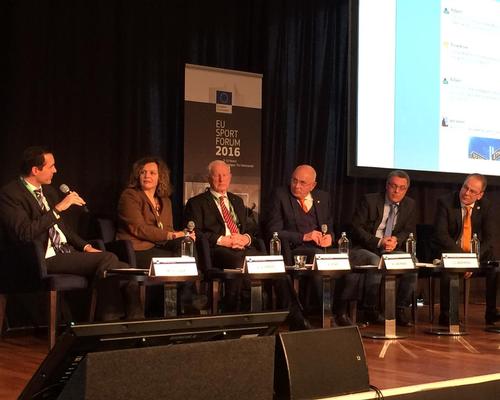10 Mar 2016
Sports federations invited to commit to good governance code amid high-profile scandals
BY Matthew Campelli

The European Commission will invite all sporting federations in the continent to commit to a criteria for good governance in the wake of the scandals surrounding FIFA and the IAAF.
Tibor Navracsics, commissioner for education, culture, youth and sport at the European Commission, told delegates at the EU Sport Forum that he would launch the initiative during the European Week of Sport in September, and put it forward as the way to “drive reform” and allow federations to “stand up and be counted”.
He said federations which do not adhere will “have to face the consequence”, and those that fail to achieve the highest ethical standards “must face greater scrutiny, and if need be, our [the European Commission’s] full regulatory power”.
“We are all painfully aware of the scandals engulfing professional sport. The crisis of FIFA, doping in athletics and match-fixing in tennis – there are many threats to the integrity of sport,” said Navracsics.
“My ambition is in four years time we are in a much better way than today, and we can once again have faith and confidence in sport organisations. It is the only way forward.”
Navracsics admitted that the European Commission would have to use the “carrot rather than stick approach” and said that it was launching a working group on good governance. A panel, on which the Hungarian was present, agreed that national governments held the balance of power when it came to reform.
Dutch minister of health, welfare and sport, Edith Schippers, said that all 28 governments in the European Union should make consistent conditions for sports federations with regards to transparency, human rights issues and labour conditions before spending taxpayers’ money on bidding for events.
“It’s high time for governments to act, and the European Union is a good framework for such action,” added Jen Sejer Andersen, international director of Play the Game, the anti-corruption body.
Andersen said the corruption in sport which has come to the fore in recent months was “not an unwanted side-effect” but the “built-in business model of modern sport since the 1970s”.
“It goes much beyond FIFA and personal greed,” he added. “Less than one third of sports organisations make accounts public, very few have term limits and there are no internal checks or integrity checks.”
Close Window